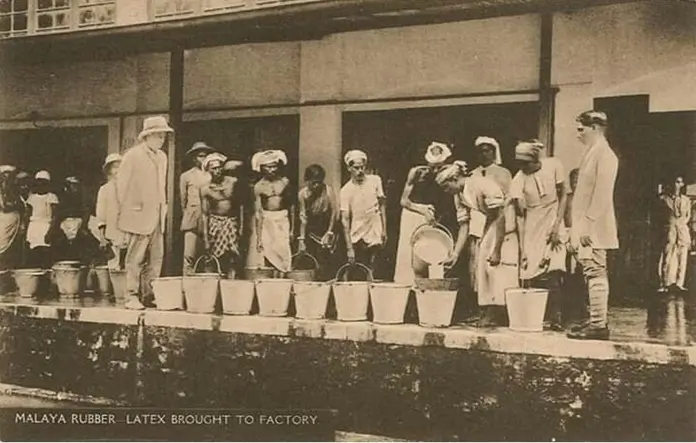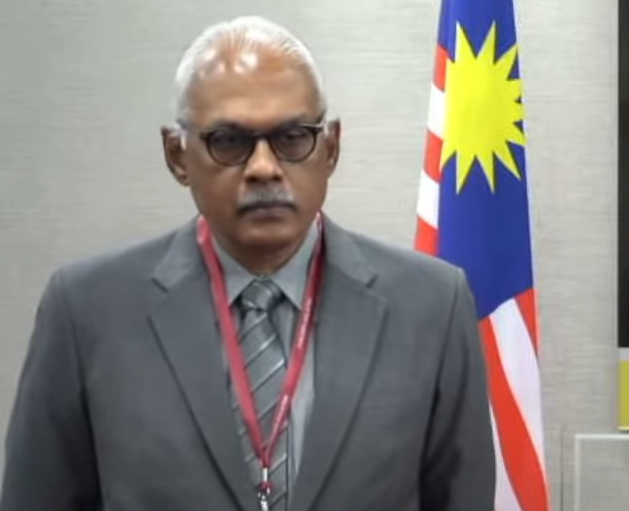

KUALA LUMPUR, Sept 3: The Malaysian government has a historical debt owing to the Indians in the country, particularly those who were brought in by the British as indentured labourers to work in the plantations, says former Klang Member of Parliament Charles Santiago.
“Indians came into the country as indentured labour. Many of their generations worked in these plantations for a very long time. It was the income from the revenue from the plantations that helped to build this country. It was the Indians who had come here who cut the forest down, planted the rubber trees, went out everyday (to work) for years and years.”
This brought in huge amounts of revenue for the country and it was from this revenue that roads were laid, buildings were constructed, the government was financed as rubber at one point (in the international market) enjoyed very high prices and the government benefitted from it for many decades, Santiago said during a recent interview with Weekly Echo.
On the other hand, many generations later, these Indians and their subsequent generations have remained poor.
Hence, there is something called a historical debt, where the country must recognise the Indians’ contribution and support the community so that the issue of poverty within the community can be addressed, and ensure that the community that contributed enormously to Malaysia is not forgotten, said Santiago, who sits on the Selangor Indian Consultative Council (SICC), a body set up to resolve issues faced by the Indian community in the state.
“Right now you don’t see them in the history books and even the Indians are not talking about it. But there is a debt. Our forefathers had contributed directly to the development of this country. But the children, grandchildren, great grandchildren are in poverty. That has to be addressed and recognised by the government.”
To another question on the hurt and injury to the dignity of the Indians in Malaysia with continuing implications by several irresponsible factions that Indians are “not equal citizens” of this country, when historical record shows that Indians in Peninsular Malaysia had been traders, propagators of Islam, teachers, financiers and pioneers in many areas areas including in scientific and medical research and had even been members of the royal households in the past, long before the British brought in the hardworking labourers as well, Santiago said the notion of “pendatang” is being used loosely now especially to place controls on developments that involve the Chinese or Indians.
This stems from the spread of fear by some in the Malay community, who have been led to believe in an imaginary “enemy” that does not exist. “Really, the Malays have nothing to fear,” he said, adding that they will benefit no matter which party comes into power. If PH is in power, it will do anything to gain the support of the Malays and so will the other parties if they are in power, and hence the Malays have nothing to lose.
However, he also opined that over the years several irresponsible Indian political leaders themselves could have inflicted the attack on their own dignity. These leaders had swindled and played out the community, said Santiago, who is also chairman of the National Water Services Commission (SPAN).
On what can the Indians themselves do, Santiago said past the point of complaining, protesting, Indians must act. They must come together and look at how to raise the wellbeing of the community. They need to aspire to become a value-creating society, and strengthen a support system that can push people up whether it is through education or business.
He also said in the current Artificial Intelligence (AI) era, the opportunities were endless and where a dropout could be encouraged to become a computer genious. The dropout could be provided with opportunities to explore and acquire computer skills, and still be successful, and this is one example of how rethinking the current systems will help with value creation for the society, he said.
On claims of discrimination faced by Indians in acquiring or accessing assistance already set out by the government, Santiago said there had been instances of discrimination, such as in the E-Kasih programmes. Single Indian women sometimes do face discrimination compared with single Malay women, he said, attributing this to those who process the applications for such assistance.
He suggested that perhaps all applications should be made without names but file numbers instead so that those handling the cases will look at the set criteria alone for approving an application rather than basing it on race and religion.
Will that be possible in the country?
He admitted that this will be unlikely but added that that could be one way to avoid discrimination and that the government had the obligation to look into the needs of all its citizens.
On the progress seen by the SICC, which has been tasked with planning development strategies for the Indians in the state including their welfare and economy, Santiago said various education and economic empowerment programmes had been put in place for the Indians in the B40 category, with the support of the government and non governmental organisations.
The idea is to move them out of poverty and get them to be competitive. But the issue of poverty must be addressed, he stressed, saying that the gap between the poor and the rich has been widening.
He also said efforts were being made to reach out to ensure that the people were aware of such programmes and that they can benefit from it. Right now, many are still unaware of these programmes, he said.
–WE